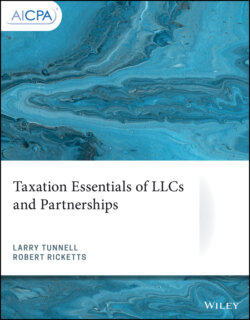Читать книгу Taxation Essentials of LLCs and Partnerships - Larry Tunnell - Страница 11
Example 1-3
ОглавлениеCarl is a partner in a multi-state accounting firm organized as a limited liability partnership. Two years ago, one of his partners in Florida took a bribe in exchange for rendering a clean audit report on one of the firm's newer clients. Last year, the client filed for bankruptcy protection, and its stockholders sued Carl's accounting firm. After it was discovered that a partner in the firm had taken bribe money to issue a clean report, the stockholders won a significant settlement from the firm. The settlement was so large, in fact, that it caused Carl's firm to become bankrupt. Carl will lose his entire investment in the firm but will not suffer any additional liability for the settlement obligation because he had no involvement in issuing the fraudulent audit report. In contrast, the partner who issued the fraudulent report will not only lose his or her investment in the firm but will also remain personally liable for the portion of the settlement obligation remaining unsatisfied after bankruptcy of the accounting firm.
A relatively new type of limited partnership, the limited liability limited partnership (LLLP), is available in some states.2 Unlike the LLP, which is a general partnership that registers in the LLP form, an LLLP is a limited partnership in structure that registers with the state in LLLP form. Therefore, the primary difference between an LLLP and the more familiar LLP is the extent to which the partners participate in management. An LLLP is essentially a limited partnership in which all partners, including the general partner(s), have limited liability. Therefore, unlike an LLP, not all partners in an LLLP can participate in management. All do, however, have limited liability for losses incurred as a result of the actions of other partners.
A final type of entity which can be treated for tax purposes as a partnership is the limited liability company (LLC). An LLC, like an LLP or LLLP, extends liability protection to all partners without requiring that they forfeit their ability to participate in management or act as the firm's representative in dealings with parties outside the partnership. Moreover, LLCs, like general partnerships, can elect to be taxed as either partnerships or corporations (including S corporations). In all states and the District of Columbia, an LLC can exist with only one owner. In contrast, LLPs and LLLPs, like all other partnerships, are required to have two or more partners.3
